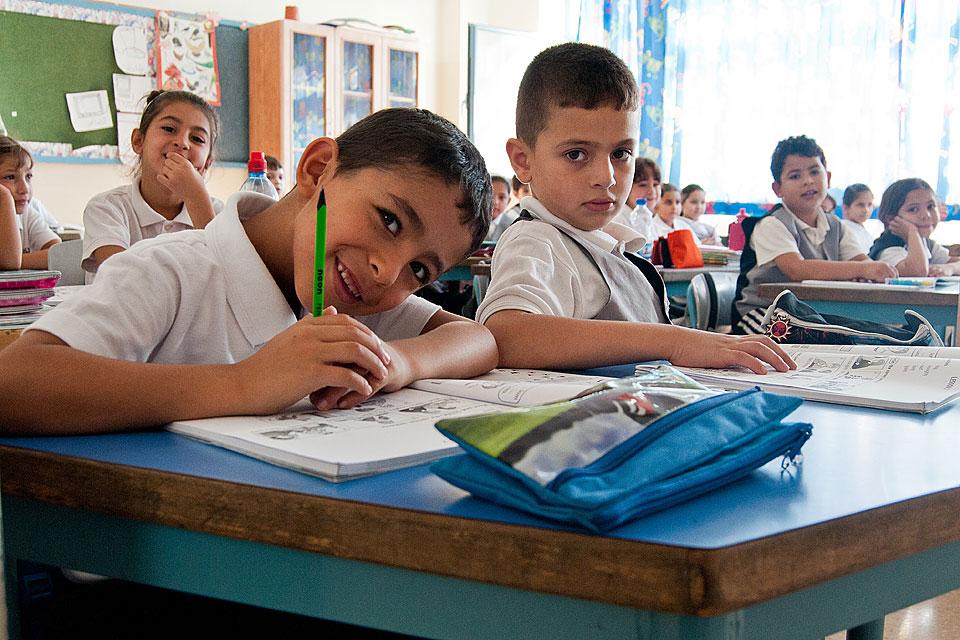LWF Welcomes UN Call for Protection of Human Rights Workers in Honduras

Promotion of tolerance and mutual respect starts at an early age at the ELCJHLârun Dar al-Kalima Evangelical Lutheran School in Bethlehem where the student body is 40 percent Christian and 60 percent Muslim. © ELCJHL/ Elizabeth McHan
Latin American Churches Working on Human Rights Network
The Lutheran World Federation (LWF) has welcomed a preliminary United Nations report on human rights violations in Honduras that urges protection of human rights workers, who are facing death threats, extrajudicial executions, disappearances and torture.
“We welcome the UN envoy’s preliminary statement,” said Eva Ekelund, regional representative of the LWF’s Department for World Service (DWS) in Central America. “The situation is one of ongoing violations of human rights.”
UN Special Rapporteur Margaret Sekaggya on 14 February in Tegucigalpa said Honduras faces serious challenges in combating violence and insecurity. “The pervasive impunity and absence of effective investigations of human rights violations undermine the administration of justice and damage the public’s trust in authorities.”
Those under threat include journalists, National Human Rights Commission staff, lawyers, prosecutors and judges, as well as human rights defenders and those working on environmental and land rights issues, said the UN independent expert charged with monitoring the situation of human rights defenders at the end of an eight-day mission to the country. Her final report will be issued in 2013.
In August 2011, the LWF called for the establishment of an Office of the High Commissioner for Human Rights in Honduras in light of violence over land issues. LWF General Secretary Rev. Martin Junge said scrutiny brought by the UN office would help deter the violence.
Ralston Deffenbaugh, LWF assistant general secretary for International Affairs and Human Rights, stressed the continuing need for a UN presence in Honduras. “Killings and other human rights abuses are carried out with impunity. There are no satisfactory investigations. There are no independent international observers,” he said.
Churches and human rights organizations report that over the past two years the killing of peasants in Bajo Aguán has become a horrifying part of daily life.
When two masked men shot Matias Valley on 20 January, he became the 45th organized peasant to be slain in the agrarian conflict in Aguán. “What happens in Honduras is attributed to organized crime and drug trafficking, but the offenders are the armed forces and police,” said Diego Almedo (a pseudonym), who has risked his life to denounce human rights violations in the region.
Honduras is one of the countries with the highest rates of violence in the world, with 82 deaths per 100,000 people, according to the National Autonomous University in Honduras.
The situation in Aguán stems from agrarian reform in 1972 when the Honduran government gave land to a big landowner. The peasants have since organized to demand their land back. In response, the government has deployed 600 police and army officers to the region.
A recent DWS update on the human rights situation in Honduras warned that the situation in general, and especially in Bajo Aguán, was “alarming,” adding, “There is cause of great concern with massive loss of life.”
Ekelund said DWS continues work with existing networks to provide protection and refuge for human rights defenders.
Rev. Dr Patricia Cuyatti, LWF area secretary for Latin America and the Caribbean with the Department for Mission and Development, said the LWF member churches in the region are establishing a network to monitor human rights violations.
“Having a UN office in Honduras will reinforce the work of the state institutions and civil society organizations, which includes the churches,” she stated.
Deffenbaugh noted that the voice of the church is particularly vital in the current situation. “Along with other civil society actors, the church calls for respect for human rights and dignity, and for an end to impunity,” he said.
(608 words)

